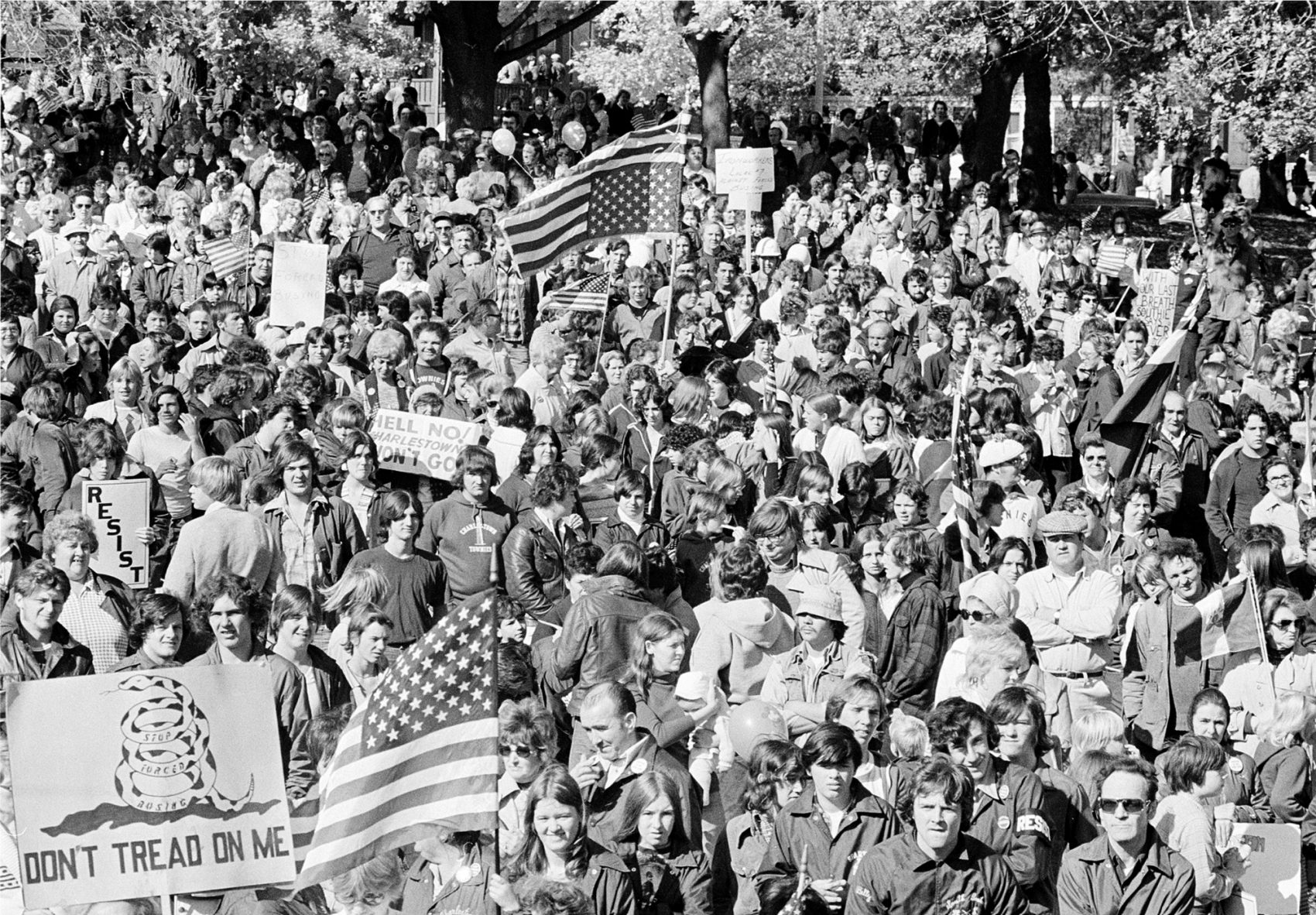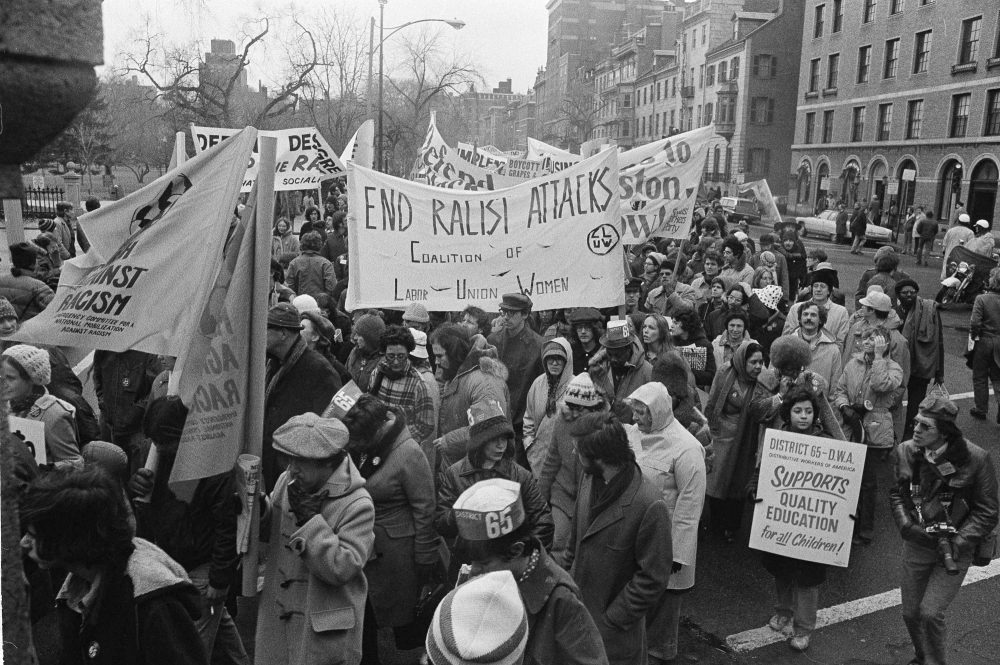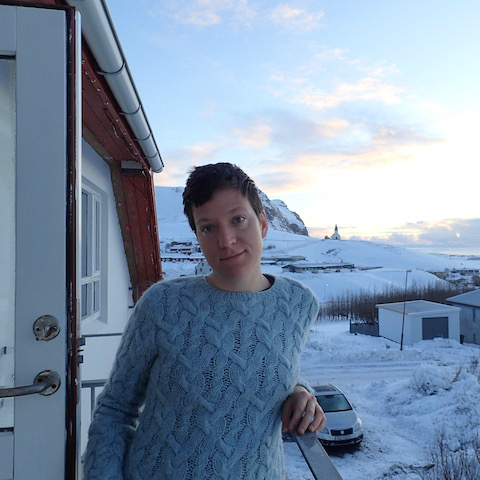Advertisement
In Massachusetts, Repeating History, Hoping For Redemption

COMMENTARY
I still remember how I felt when my neighbor warned me about the homophobic graffiti someone had scrawled in the hallway of my apartment. It was hardly original, but it didn’t need to be to make the point that I was not welcome in my home.
My stomach turned and my mind reeled. I'd just told the renters who were subleasing my apartment their month-to-month sublease would be up. I was certain one of them had scrawled the hateful words in anger. I tried to figure out who was responsible. The scientist? The new girl? Or one of the two who worked as cooks, as I had?
I could shrug off an insult yelled out a car window, but to have my home defaced and have no legal recourse was an awful feeling.
I was hurt and disgusted, and I was unprepared for the slap of rejection I felt when the Somerville police told me there was nothing they could do to address the hate crime. "It's a private residence," one cop apologized. "If you had cameras, maybe."
My partner and I painted over the graffiti, moved in and tried to move on.
While Boston drivers hurled homophobic slurs at me more than once, this time I felt the violence personally. I could shrug off an insult yelled out a car window, but to have my home defaced and have no legal recourse was an awful feeling.
Given my experience, I was unsurprised that Massachusetts had the fifth-highest amount of post-election hate crimes (a total of 35 incidents) as reported by the Southern Poverty Law Center. A recent discovery of swastikas at Cambridge Rindge & Latin suggests the present ugliness is far from over.
The state has long had a core of racism and homophobia. This was something I realized early on, watching black METCO students struggle to fit in at my suburban, predominately white middle school. My observations in this regard were reinforced in adulthood, as I considered the inequality in the city's public transit options for low-income, majority non-white areas, as well as the long-time exclusion of the LGBT community from the St. Patrick's Day parade.
As a queer, gender-nonconforming person, I’ve been exposed to Boston's dark side on too many occasions to pretend otherwise.
While I'm fearful for the state of this country given the outcome of the election on November 8, I have to ask myself: Is it possible the uptick in hate crimes in the state can help Massachusetts finally get over its history of hate?

One of the biggest hurdles to overcoming racism in the region is the blind eye of the otherwise well-intentioned — people who have the resources to address the problem proactively, in other words —who do not see the problem because it does not directly affect them. The city remains segregated, even as populations of diverse ethnic groups have increased over time.
I used to live in West Somerville, a few blocks from the Clarendon Towers public housing complex. The blocks on either side of Broadway were predominantly white. The population of Clarendon Towers was predominantly black. Black residents would congregate at the bus stop and catch a ride down to nearby Davis Square, [but they wouldn't walk through the neighborhood, grab a soda at the corner store or use the nearby park — at least as far as I could tell. I regretted the existence of such artificial boundaries, for all our sakes.
Other neighborhoods I've lived in — Jamaica Plain, East Cambridge — had similar color lines that were unofficially observed.
As a result of this segregation, Bostonians don't have frequent opportunities to socialize with and get to know people of other races or cultures. Less understanding means more stereotyping. It also means that unconscious assumptions about other people go unchecked and unchallenged. It’s easy to brush aside incidents that occur or to normalize the hatred as random.
From 2000 to 2010, the population of both Asians and Latinx in Boston grew by more than 25 percent. Cambridge and Somerville each gained almost one-third more Asian residents. Somerville’s Latinx population increased by 18 percent during the same period. Black populations experienced growth under 5 percent in each city.
The Census doesn’t count LGBT Americans, but a 2013 Gallup survey showed 3.5 percent of Massachusetts residents identified as LGBT.
Despite this increase in diversity, and despite Boston’s conception of itself as a diverse and welcoming community, the city is often tolerant, at best.
By shining a light on the currents of hate that have been present all along, perhaps the harassment reported lately can help all Boston-area residents work hard to be better versions of themselves.
The people who harassed me knew they could get away with spreading hate because no one would call them out. I imagine that's the same reason someone felt emboldened to scrawl anti-Semitic graffiti in a high school bathroom, and the same reason two Babson students drove around the Wellesley College campus flying a Donald Trump flag out of their pickup.
When, after the election, Attorney General Maura Healey created a hate crime hotline in response to the rash of election-related harassment reports, I cheered the push for accountability. By shining a light on the currents of hate that have been present all along, perhaps the harassment reported lately can help all Boston-area residents work hard to be better versions of themselves.
You've come a long way, Boston. Don't look away now.
editor's note: An earlier version of this essay stated that two Babson students drove around the Wellesley campus flying a Confederate flag. We regret the error.
